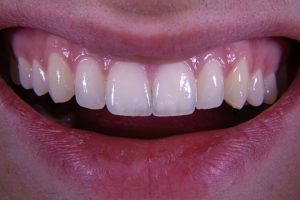Denture adhesives are not always a must, but can greatly improve the fit of your partial or full dentures. Many people still use denture adhesives even on well-fitting dentures just for the added sense of security.
Also known as denture cream, denture adhesive is basically a glue or pastes that help keep the denture firmly in place by supporting the tissues instead of depending on clasps or suction. A small quantity of denture adhesive can be applied to the surface of the denture for improves retention and stability. If you have a poorly-fitting denture, do not use the adhesive to compensate for the bad fit and instead see your dentist immediately. If you would like extra security for your dentures, you will obviously need a denture adhesive. Nevertheless, prior to getting an adhesive, here is what you need to know:
The Types of Denture Adhesives
Denture adhesives come in a wide range of forms, such as powders, pastes, and pads. Before buying any product, make sure to read the label first for directions. If you use too much adhesive, it can affect your bite and also pave the way to various jaw problems that may cause the dentures to wear down prematurely. Pads are custom cut shapes that can be trimmed to fit your denture properly, while powders are the easiest to clean and simply need to be mixed with water for activation.
Way to Use
Denture adhesive needs to be applied in small quantities on clean dentures. A good habit is to first wash the denture properly, apply the recommended quantity of denture adhesive and quickly place it in your mouth. You may need to keep reapplying the adhesive, especially to the lower denture due to activities like eating and drinking during the day.
The bottom line is that you should consult your dentist before you opt for dental adhesives. If you don’t require dental adhesive, it is better to avoid using it.







